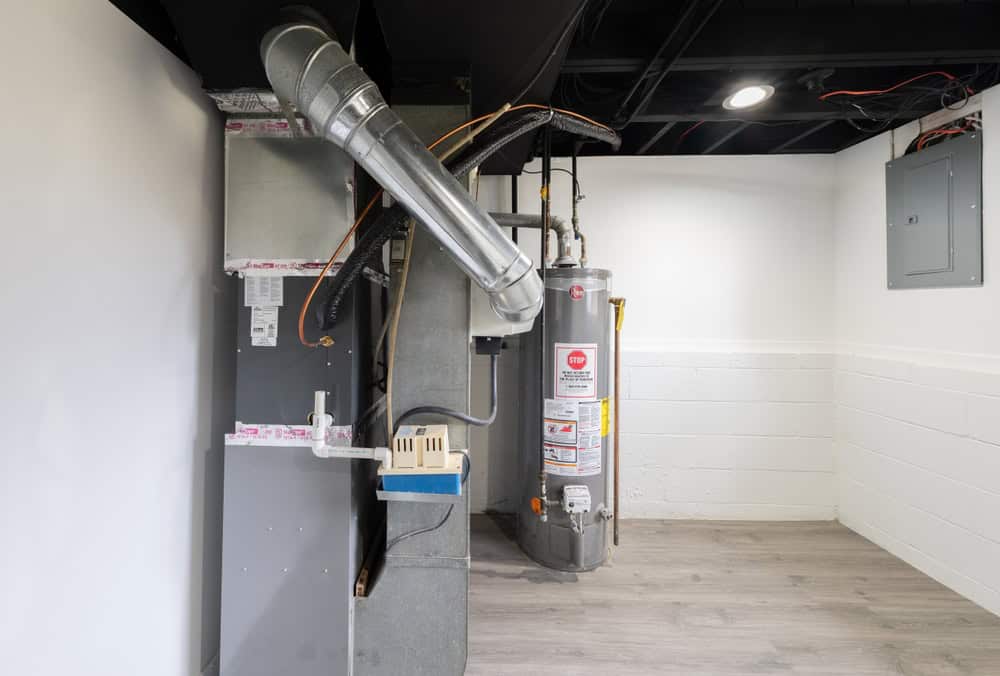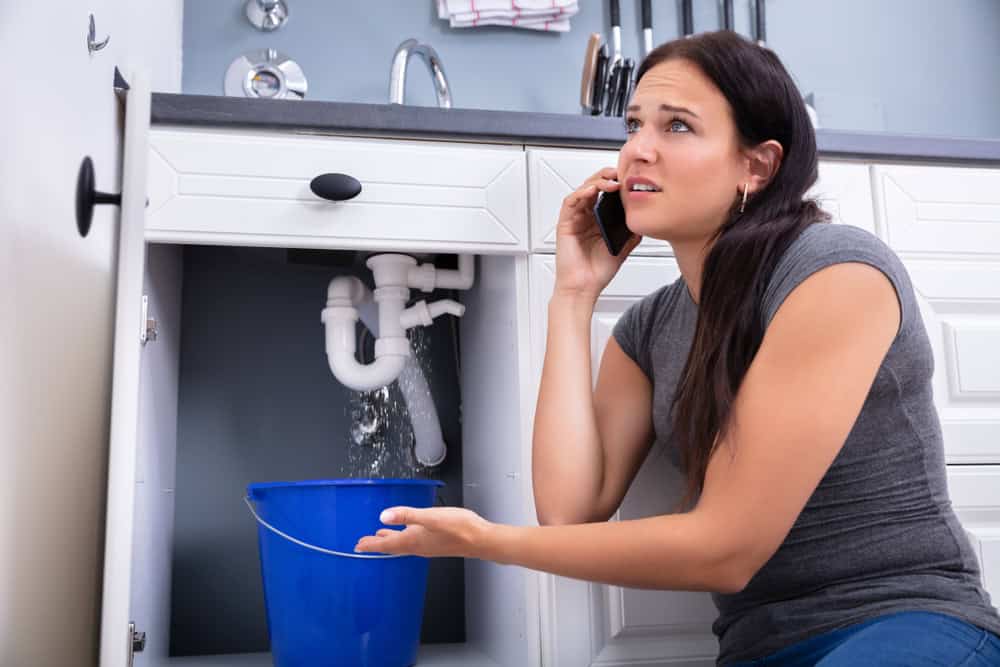Summary:
Common Water Heater Problems in Monmouth County Homes
Water heater issues don’t announce themselves politely. One day you have hot water, the next you don’t. Understanding what typically goes wrong helps you make better decisions about repairs versus replacement.
Most homeowners notice problems when water gets cold quickly or never heats up at all, or when the unit begins leaking. These aren’t just inconveniences – faulty water heaters can cause expensive water damage and drastic increases in your utility bill.
Living near the coast brings unique challenges. Saltwater air accelerates corrosion on water heater components, especially the tank, connections, and heating elements, while humid coastal environments promote rust and mineral buildup inside the tank.
When Your Water Heater Stops Producing Hot Water
If your water heating unit suddenly stops producing hot water or the hot water runs out quickly, it’s a clear sign of an issue that could be due to a malfunctioning heating element or sediment buildup in the tank. This problem affects your entire household routine.
For electric water heaters, heating elements burn out over time. Gas units might have pilot light issues or problems with the gas valve. Excessive or weak heating can be caused by sediment buildup, malfunctioning thermostat, or damage to the heating element, while gas-powered units might have a failed pilot light, sometimes just because components are dirty.
If you keep running out of hot water repeatedly, your tank simply isn’t big enough for your household’s hot water usage, and you should consult experts about getting a bigger tank or going tankless since tankless water heaters don’t run out of hot water.
The age of your unit matters significantly. If your water heater is under seven years old, you’ll almost always want to repair it, but if it’s over seven years old, things get tricky and may not make financial sense. Professional diagnosis helps determine whether heating element replacement or thermostat repair will solve the problem cost-effectively.
Don’t ignore temperature inconsistencies. When mineral sediments gather at the bottom of your heating tank, your system will have inconsistent water temperature, and a reliable contractor can restore proper hot and cold water variations.
Strange Noises and What They Mean
Popping or banging sounds from your tank can signal sediment buildup or mechanical problems. These aren’t sounds you should ignore, especially in coastal areas where mineral deposits accumulate faster.
Lime and calcium deposits that coat the bottom of a water heating system sometimes trap water below the debris, and when the heating element activates, the water beneath minerals creates an audible pop – in older units, this can cause the entire system to explode.
A partially closed or obstructed water valve within your unit will cause a high-pitched, screeching noise, so check your valves periodically to ensure they’re completely open and water flows freely. This simple check can save you from unnecessary service calls.
Rumbling or banging during operation usually indicates sediment has settled at the tank bottom. Strange noises like banging or rumbling during operation suggest sediment buildup or other tank issues, and sediment buildup is common in tank water heaters, especially in areas with hard water, making annual tank flushing important to prevent this issue and extend unit life.
If your gas-powered water heater makes crackling sounds, you may have condensation on the heating element. While some sounds are normal, persistent or loud noises indicate problems that need professional attention before they worsen.
Repair vs Replace: Making the Right Financial Decision
The repair-or-replace decision comes down to age, condition, and cost-effectiveness. Deciding whether to repair or replace depends on the unit’s age, problem nature, and repair cost versus replacement cost – if the water heater is within its lifespan (typically 8-12 years) and repair cost isn’t prohibitively high, repair is a worthwhile investment.
A good rule of thumb is that water heaters have a 9-year life expectancy, and if your water heater is more than 9 years old and starts giving trouble, it will almost certainly be more cost-effective to replace it. Professional assessment helps you avoid throwing good money after bad.
Consider the total cost of ownership. Replacing a water heater can be a large upfront expense, which is why we repair units when possible to help ease worry and make the situation less stressful.
When Water Heater Repair Makes Sense
If your water heater is under 10 years old and the issue is minor, repairs are often possible and cost-effective. Simple fixes like thermostat replacement, heating element repair, or valve adjustments can restore full function without major expense.
If your water heater is still within its expected lifespan (around 10 years for conventional heaters and 15 to 20 years for tankless water heaters) and the problem can be fixed without replacement, repair is the smart choice. This approach maximizes your original investment.
Minor leaks don’t always mean replacement. If the leak appears near the top of the water heater, check piping connections for corrosion or cracking – generally, these kinds of leaks aren’t difficult to resolve, but when your water heater springs a leak toward the base, it could indicate a serious problem.
Most repairs can be completed in a single visit, depending on the issue’s complexity. Common repairable problems include faulty thermostats, worn heating elements, damaged pressure relief valves, and minor connection leaks.
Regular maintenance extends repair viability. Regular maintenance, such as flushing the tank and checking components, can help extend your water heater’s lifespan. Tank water heaters usually have problems with sediment building up, meaning homeowners should flush their tank annually or more, and checking the anode rod is another major element in keeping a water heater in top shape.
When Water Heater Replacement Is Your Best Option
If you find yourself dealing with costly water heater repairs more than once every two years, it’s time to consider replacement. Frequent breakdowns indicate your unit has reached the end of its reliable service life.
Age is a crucial factor. A typical tank-based hot water heater lasts between 8-12 years before needing replacement with a more energy-efficient model, while tankless water heaters may last longer at 10-15 years. Most electric units last between 10 to 20 years before needing replacement, varying based on usage level and maintenance, while gas-powered units can have shorter lifespans than electric systems.
A leaking water heater is often a sign of internal corrosion and typically indicates that replacement is necessary. Tank leaks usually can’t be repaired cost-effectively, especially in older units where corrosion has compromised the tank integrity.
Consider upgrading for efficiency. If your current water heater is outdated or not performing efficiently, consider upgrading to a high-efficiency model – the latest tankless water heater models offer improved energy efficiency, faster heating times, and potential savings on monthly energy bills.
Most people wait for their existing water heater to fail completely before replacing it because they’re unaware of gradual failure signs – it’s crucial to know when your water heater is on its last leg to avoid damage and disruption, and if you discover failure signs, start exploring replacement options. Proactive replacement prevents emergency situations and gives you time to choose the best unit for your needs.
Expert Water Heater Solutions for Monmouth County Homeowners
Water heater problems don’t wait for convenient times, but you don’t have to face them alone. Understanding when to repair versus replace protects your investment and ensures reliable hot water for your family.
Our professional technicians identify problems, explain what’s wrong in plain terms, provide upfront pricing before starting work with no surprises or hidden fees, and if your unit needs replacement, we walk you through options that make sense for your property and budget.
Whether you’re dealing with strange noises, inconsistent temperatures, or complete hot water loss, we at AME Plumbing Heating and Cooling provide expert diagnosis and solutions tailored to Monmouth County’s unique coastal challenges. Don’t let water heater problems disrupt your daily routine – get the professional help you need to restore comfort and peace of mind.





